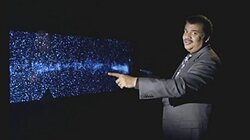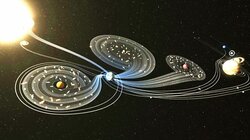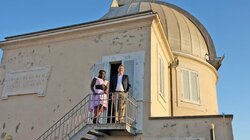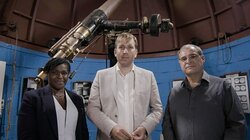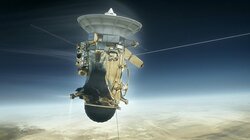Scientists have spent hundreds of years observing the planets with telescopes and over fifty exploring the solar system through space travel, so you might have thought they knew our cosmic neighbourhood pretty well.
But actually, they've hardly scratched the surface. The reality is that most of the solar system is still almost a complete mystery. Beyond the orbit of Neptune lies a vast number of strange, dark, icy worlds - the trans-Neptunian objects. And it's only over the last few years that we've even started to see and understand them, and have begun to realise they play a crucial role in the evolution of our solar system.
Maggie Aderin-Pocock and Chris Lintott discover how we've found hundreds of thousands of these strange new objects, some with multiple moons, others with strange orbits, and some spinning way faster than any planet in the solar system.
Marcus du Sautoy explores how studying the mathematics governing the behaviours of these objects has changed our understanding of how the solar system evolved, and how it might eventually end.



